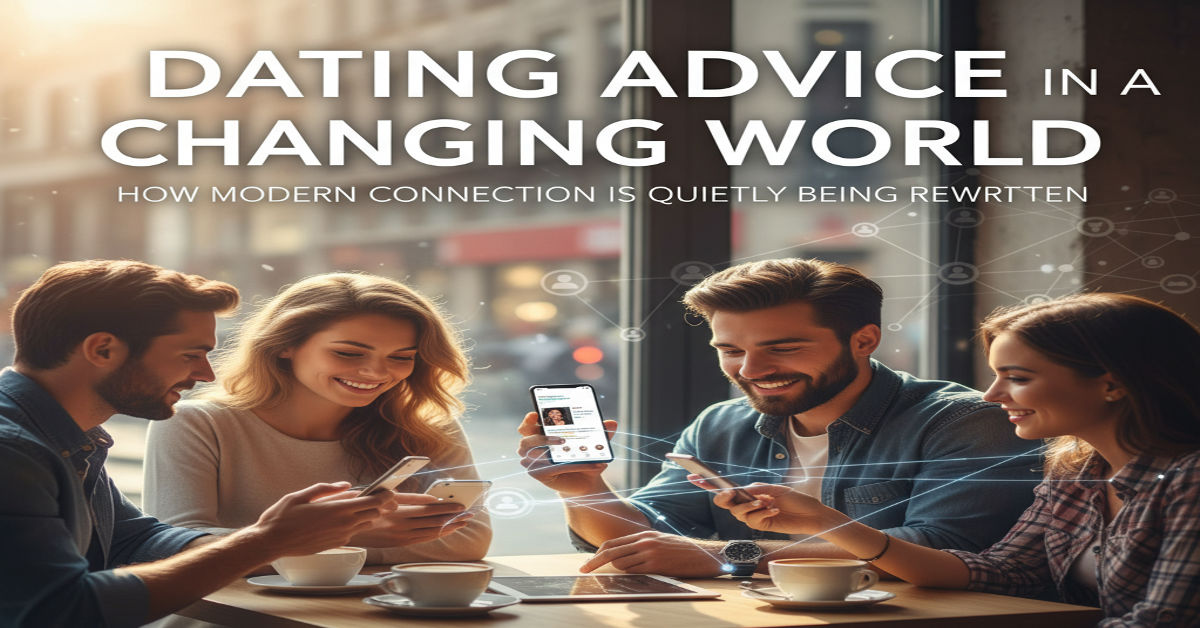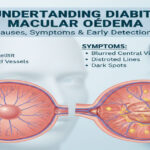The search for meaningful connection often begins with a simple request practical, trustworthy dating advice that actually reflects the way people meet and relate today. Within seconds of opening any major dating app, users are met with an endless stream of profiles, a level of choice that previous generations never encountered. And yet the underlying question remains timeless: how do two people build something genuine in a landscape shaped by technology, evolving cultural norms, and competing emotional expectations?
Instead of following old scripts, today’s daters are writing their own, navigating a world where communication is instant, boundaries are more openly discussed and emotional awareness plays a central role. Dating is no longer a linear journey from first meeting to long-term commitment. It is a series of decisions — small, subtle, often ambiguous — that unfold at the pace of modern life.
This article explores the social mechanics behind modern romance, offering grounded dating advice informed by behavioral insights, professional expertise, and lived observation. Through interviews, contextual reporting, and thematic analysis, it aims to answer the real question at the heart of it all What actually helps people form healthy relationships today? The answer lies not in flashy techniques but in understanding how emotional pacing, communication patterns, and cultural shifts shape the way connection is built.
Digital Introductions and the Reality of First Impressions
Most relationships now begin online. This shift has brought efficiency but also new forms of pressure. Many daters feel compelled to optimize their profiles, select the “right” photos, and craft bios that strike a balance between personality and strategy. But effective dating advice in 2025 isn’t about optimization — it’s about authenticity.
Psychologist Dr. Alisha Reed, who studies adult attachment and communication, says, “Treating yourself like a product leads to performance, not connection.” She notes that unfiltered photos and honest bios lead to more successful transitions from online to offline.
Apps still offer undeniable benefits: expanded access for LGBTQ+ communities, people in remote areas, or those with specific lifestyles or cultural backgrounds. But digital chemistry must evolve into real conversation, where nuance — tone, timing, humor — becomes clearer. Successful daters are those who treat digital interactions as introductions, not endpoints.
Why Emotional Pacing Is a Pillar of Today’s Dating Advice
Without traditional scripts to guide behavior, emotional pacing has become a cornerstone of healthy connection. Many people confuse early vulnerability with instant intimacy, but emotional depth without relational context can create a fragile bond.
Relationship counselor Mark Seiden explains, “Healthy pacing matches the rhythm of the interaction. Too fast can overwhelm. Too slow creates uncertainty. The best dating advice is to mirror energy while staying genuine.”
A gradual approach — sharing small personal details, observing responses, and deepening conversation over time — builds resilience. Younger daters often use what they call a “soft launch” style: a mix of humor, curiosity and light vulnerability that slowly expands into deeper conversation.
This isn’t game-playing; it’s emotional sustainability. In a dating environment where people juggle work stress, boundary setting, self-care routines, and personal growth, pacing ensures connections unfold at a human speed.
The Economics of Attraction and Relational Investment
Attraction may seem purely emotional, but time, energy, and attention function as relational currencies. Where people invest these resources reveals what they value — and what they are ready for.
Below is a generational look at shifting relationship timelines, adapted from earlier narrative context:
Changing Relationship Timelines
| Generation | Avg. First Marriage Age | Avg. Cohabitation Age | Common Meeting Method |
| Boomers | 23–24 | Rare before marriage | Community/Friends |
| Gen X | 25–26 | Late 20s | Workplaces |
| Millennials | 27–29 | Mid-20s | Online platforms |
| Gen Z | 29+ projected | Early 20s | Social media/apps |
Economic pressure — rising rent, flexible work, shifting job markets — influences when people commit. But it also increases intentionality. People want partners who align not only emotionally but logistically: lifestyle pace, communication habits, future goals.
Seiden observes, “People aren’t more selective because they’re superficial — they’re selective because life is harder. Compatibility now includes emotional bandwidth and lifestyle coordination.”
This context is central to realistic and sustainable dating advice today.
Texting, Communication Gaps and Misunderstandings
Miscommunication has become one of the most common reasons early connections fizzle. Texting lacks tone, body language, and pacing — leaving room for interpretation that often reflects someone’s fears more than the message itself.
Aligning communication preferences early is one of the most effective pieces of dating advice daters rarely follow. Whether you prefer daily texts or periodic check-ins, clarity prevents conflict.
Digital Miscommunications and What They Often Mean
| Behavior | Common Interpretation | Likely Reality |
| One-word replies | Disinterest | Multitasking or tired |
| Delayed response | Avoidance | Busy schedule or mental reset |
| Long paragraph | Neediness | Expressiveness or clarity |
| Emoji-heavy text | Immaturity | Tone markers or warmth |
Communication expert Dr. Rachel Kim says, “Digital conversations aren’t shallow — they’re layered. The key is meta-awareness: acknowledging how you communicate so the other person isn’t guessing.”
Cultural Shifts and Evolving Relationship Values
Modern dating reflects broader cultural movements toward autonomy, inclusivity, and emotional well-being. Younger generations openly discuss mental health, boundaries, attachment patterns, and personal values early in the dating process.
This cultural shift brings new opportunities and new tensions. While psychological terminology helps some people express needs, overusing labels can box people into limiting categories.
Dr. Reed warns, “Labels should guide empathy, not restrict possibility.” Effective dating advice encourages self-awareness without self-limitation.
The broader trend is clear people now seek relationships that support personal development, psychological safety and mutual respect. Romance is no longer a project of conformity — it is an extension of identity, growth and shared meaning.
Key Takeaways
- Thoughtful emotional pacing strengthens connection and prevents burnout.
- Aligning communication preferences early reduces misinterpretation.
- Authentic profiles and natural conversation outperform highly curated strategies.
- Economic realities shape relationship timing and expectations.
- Algorithms introduce people, but emotional insight maintains connection.
- Self-awareness supports healthy relational choices.
- Cultural shifts encourage more conscious, inclusive, and respectful dating.
Conclusion
In a world shaped by technology, shifting cultural norms, and growing emotional awareness, the most effective dating advice centers on qualities that have always mattered curiosity, clarity, empathy, and presence. Apps may widen access to potential partners, but connection still develops through human moments — shared humor, patient listening, honest conversation, and the willingness to show one’s real self.
Modern dating is neither hopeless nor overly complicated. It is simply different, shaped by pace, pressure, and possibility. As Dr. Lopez emphasizes, the best connections form when people stop treating dating like a performance and begin treating it like an exploration.
The landscape will continue changing, but the emotional foundations remain constant. Amid apps, algorithms, and evolving norms, showing up authentically — and consistently — is what truly moves connection forward.
FAQs
1. What’s the most reliable piece of dating advice for modern daters?
Be consistent. Genuine, steady communication builds trust far more than heightened intensity or clever tactics.
2. How can I avoid miscommunication when texting?
State your communication style early, avoid assumptions, and use tone markers when needed. Clarity reduces tension.
3. How do I pace emotional openness effectively?
Share gradually. Respond to the energy you receive. Neither oversharing nor withholding supports connection.
4. Why does dating feel overwhelming at times?
Choice overload is common. Limiting app time and prioritizing deeper conversations helps reduce emotional fatigue.
5. What matters most in early dating?
Curiosity, kindness, and clear communication — the three pillars that create a foundation for deeper compatibility.







